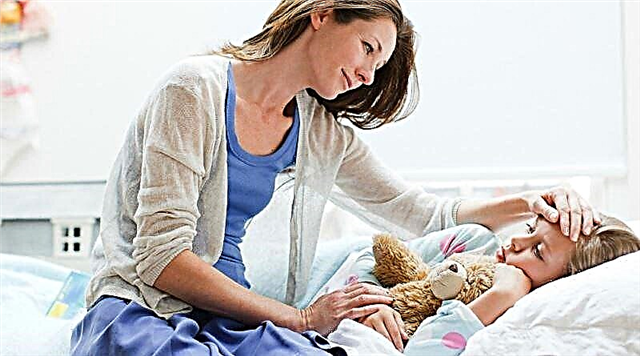All parents should know how many times a day a newborn should have stool, since this is one of the most important signs that everything is in order with the health of the baby. You need to pay attention not only to the number of bowel movements, you should also monitor the consistency, presence of impurities, color, smell and volume of feces.

Baby diaper change
How much and how the baby poops
There is no definite answer to the question "how many times should a breastfed newborn have stool". The number of bowel movements per day depends on the volume of feces that is in the baby's large intestine and presses on its walls.
Very often there are situations when a baby cannot poop for one or two days, and then begins to defecate more than 3-5 times a day. This is normal, but provided that the cub is doing well, he is cheerful and active, he does not have any obvious symptoms of constipation. As long as the newborn has a soft stomach, good appetite and good sleep, there is no need to worry.
Note! The frequency of bowel movements is individualized for each infant. How many times a day one baby will poop is absolutely not normal for another.
Normal number of bowel movements with HV
In a newborn on HB, the process of defecation most often depends on the diet of the nursing mother. If she adheres to the basic rules of nutrition, then the baby's stool will be frequent, yellow, mushy, without any inclusions. If you do not adhere to the correct diet and consume an excessive amount of food rich in carbohydrates, then the child will begin to ferment, the stool will become liquid, frothy, and his stomach will swell and growl. The frequency of bowel movements depends not only on nutrition, but also on the age of the child.

Newborn sucking breast
First 2 days after birth
During this period, all newborns begin to lose their original feces - meconium. The number of bowel movements is 6-10 times a day. Everything will depend on the individual characteristics of the digestive organs and their fullness.
Third to seventh day
If the original feces came out completely, then the baby may not poop at all. Normal poop only appears after all the meconium is gone. As a rule, in the first week after birth, babies poop no more than three times a day.
Second week
Starting from the second week, the process of breastfeeding is gradually improving and, accordingly, the baby's digestion. During this period, newborns may poop irregularly, which is considered absolutely normal. Defecation occurs up to 10 times a day.
Three to five weeks
From the third week, the baby begins to poop after each feeding or in front of it. Some babies have less frequent bowel movements. All babies are different, much depends on the digestive organs of a particular child.
Important! If the baby cannot poop for a long time, while his face turns red, tears are flowing, it is worth consulting with a doctor about this.
Month and a half
In a 1.5 month old baby, the frequency of bowel movements is significantly reduced. The baby may not poop as often as before. He can go to the toilet once every three days. During this period, the lactation process changes, the child begins to produce other protein substances that are involved in the process of breaking down food.
Two month
How much should a baby poop at 2 months? During this period of the baby's life, all digestive organs begin to adapt to feeding. A 2-month-old baby may not poo as often or continue to void as before.
Six months
At six months, the child's body already produces the required amount of important enzymes, so many mothers at this age begin to introduce complementary foods. As a result of the introduction of new products, the color, consistency and smell of feces change. A six month old baby can now poop once or twice a day.
Chair for artificial feeding
Newborn babies on willows may not poop as often as babies who eat only mother's milk. This is because any formula is digested in the infant's intestines much longer than breast milk. Most often, the same formula will work here as for babies on EB: how many times the baby eats, so much poops. Since the mixture is more high-calorie, it is not given to newborns as often as the breast, respectively, the artificial baby will poop less often.
Newborns fed on adapted formulas can often suffer from constipation of irregular or loose stools. This is all because the child's immature intestines do not have time to adapt to the new composition of artificial nutrition, and malfunctions begin in the process of defecation.

Bottle feeding
Mixed feeding chair
The poop of mixed-fed newborns has a mushy consistency and an unpleasant odor. Such babies poop once or twice a day, but it happens less often. Constipation and diarrhea very often occur, since the intestines cannot fully mix, digest and assimilate the formula. It is important for parents to choose the right food in accordance with the age of the child.
Additional Information. If the child does not poop very often, but the stool remains soft, do not worry. If the stool is very hard, the baby has to push hard to defecate, his face begins to turn red, he cries during the bowel movement, you need to see a doctor so that he can help replace the supplement.
Food-related stool changes
The frequency, volume, structure and color of the stool depend on what exactly the baby eats.
Fecal frequency
5-7 hours after birth, newborns pass the original feces (meconium). Further, they may not poop for 2-3 days. Starting from the fifth day, babies poop from once every two days to ten times a day. Usually, the process of defecation occurs during sucking or immediately after it.
How many times a day should a baby poop at 2 months? The grown up baby will poop less often. Usually, the bowels are emptied three to five times a day. At six months, a child can poop two to three times a day, at one year - once or twice a day.
If the baby poops once a day, then this regime will continue, only the structure will change (the poop will become harder).
Stool volume
The volume of feces will depend on how much the child has eaten the day before. Newborns of the 1st month of life do not poop very much - about 20 g per day. From six months, the volume of bowel movements will increase to 35-40 g per day.
Density
For a newborn, both soft mushy stools and liquid ones are considered the norm. Poop can also be quite thick, which is fine too. By the age of one, the feces are already almost formed, but rather soft and plastic.
Colour
Normal stools in newborns can be of various colors: yellow, golden, yellow-green, yellow with white lumps, brownish and green. All these shades can be observed in children on HB, after its completion, the feces darken and turn brown.
Smell
In children on HB, feces have an unusual, slightly sour smell. If a child eats a mixture, then his feces will have a not very pleasant, slightly putrid or rotten aroma.
Blotches
In newborns, the stool may contain various impurities, this is considered the norm. Impurities can be as follows:
- White lumps. They appear due to the fact that the crumb, due to the immaturity of the digestive tract, cannot completely assimilate milk;
- Undigested food. Appears during complementary feeding, is considered the norm of age-related changes. This also happens due to the fact that the baby may not yet be ready to consume the introduced products;
- Slime. It is normal, since it protects the gastrointestinal tract, you should not be afraid of its appearance in the child's feces.
Important! Parents should be wary if the child's feces contain pus and bloody streaks. This is a bad sign, you need to urgently show the child to the doctor.

Poop in a baby diaper
How to spot an irregular stool
Irregular stool is when healthy bowel movements are replaced by constipation or diarrhea, and constipation is also replaced by liquid feces.
How to understand that a baby has irregular bowel movements:
- The baby rarely begins to poop, the intestines do not empty for more than a day;
- Bowel movements are accompanied by loud screams and crying;
- The child is very restless when trying to poop;
- The consistency of the stool changes. There may be loose stools at first, then very hard.
What to do in this case:
- Mom needs to revise her diet, remove all errors in food;
- Eliminate overfeeding of the child;
- Offer your baby food only for age.
Important! If, following all the recommendations, the regularity of the stool has not been established, you should consult a doctor.

Exercise to prevent constipation
What to do when stool problems
If a child has hard poop, or in the process of defecation he strains a lot, pooping is difficult, then the whole reason is constipation.
What parents should do:
- Review the diet of a nursing mother if the baby feeds on breast milk. She needs to exclude from the menu all products that provoke excess gas formation.
- The artificial toddler may need to change the formula. You need to pick one that does not contain palm oil, as it provokes constipation.
- Massage your tummy and use a warm heating pad.
- To consult a doctor, you may need to use bifidum preparations and use glycerin suppositories.
If the baby is worried about diarrhea, you need to follow certain recommendations for nutrition and treatment of digestive disorders. What do we have to do:
- Use laxatives that allow the bowel to be emptied regularly.
- Apply glycerin suppositories or microclysters.
- Change your mom's diet. She should eat more fresh vegetables and fruits.
- Transfer the baby to a different formula. Perhaps the pediatrician will recommend giving the toddler a fermented milk mixture to normalize the stool.
- Change your drinking regime. Some pediatricians advise supplementing the baby with water. This will help keep you hydrated and improve your digestion.

Massage to help relieve constipation
When a doctor is urgently needed
There are conditions in which you need to urgently see a doctor. These include:
- The child has black stool;
- The newborn has diarrhea and persistent vomiting;
- The baby poops with white feces;
- There is blood in the stool;
- When you try to poop, pink mucus comes out of the priests;
- The general condition of the crumbs has greatly worsened against the background of stool disorders.
Parents need to be very worried about the health of a baby up to one year old, because he is so defenseless and susceptible to various diseases. Its organs are not yet fully mature and do not work the same way as in adults. It is important to recognize the existing problem in time so as not to harm the body of the crumbs.



